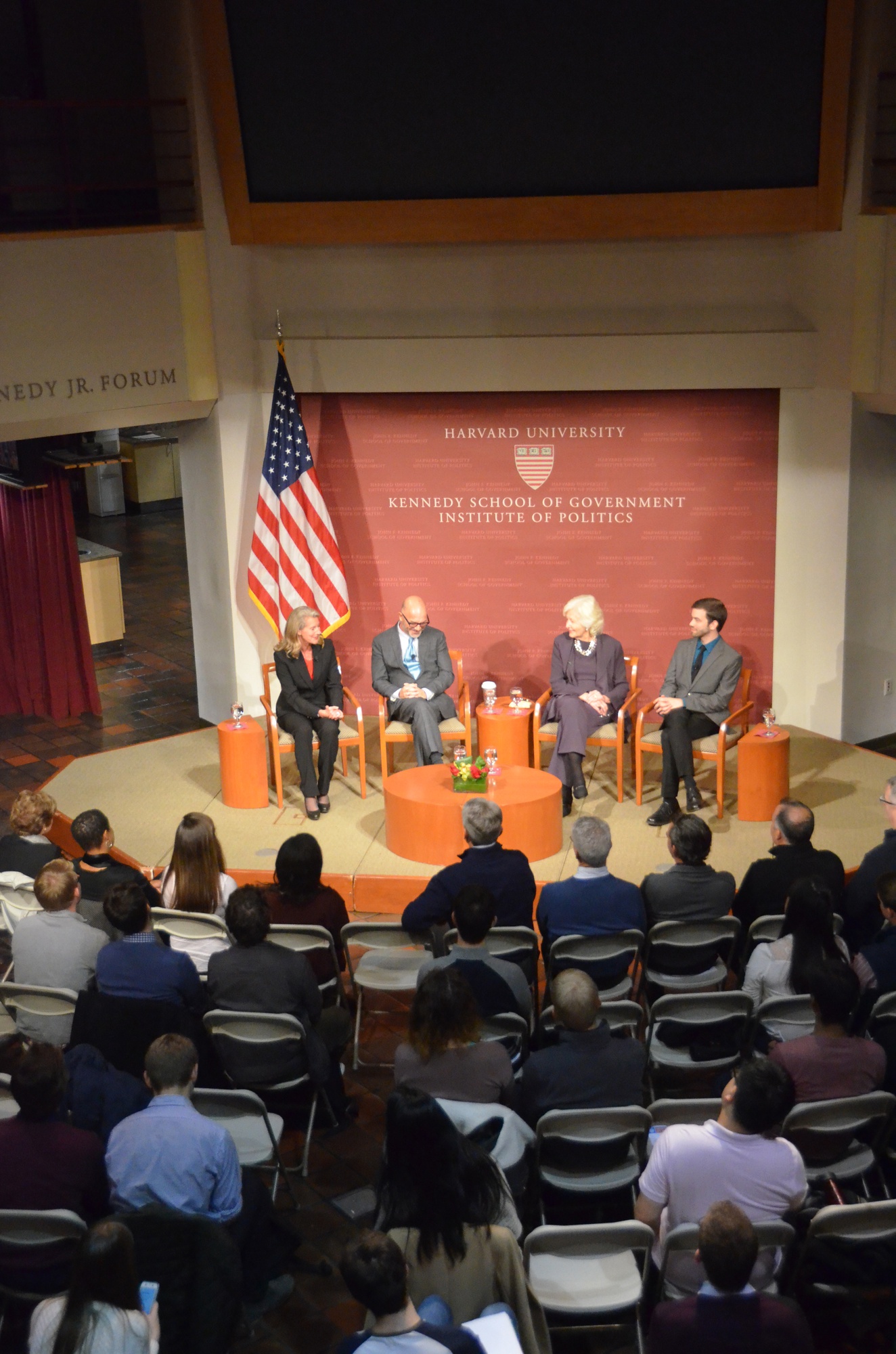
News
HMS Is Facing a Deficit. Under Trump, Some Fear It May Get Worse.

News
Cambridge Police Respond to Three Armed Robberies Over Holiday Weekend

News
What’s Next for Harvard’s Legacy of Slavery Initiative?

News
MassDOT Adds Unpopular Train Layover to Allston I-90 Project in Sudden Reversal

News
Denied Winter Campus Housing, International Students Scramble to Find Alternative Options
Panelists Argue Conservative Case for Same-Sex Marriage

Three panelists argued that being conservative or religious is not mutually exclusive with supporting same-sex marriage at Harvard’s John F. Kennedy Jr. Forum on Monday.
The panel, titled “The Conservative Case for Marriage Equality,” featured speakers from a variety of backgrounds who approached the issue from both legal and religious perspectives.

Margaret H. Marshall, the former chief justice of the Massachusetts Supreme Judicial Court, made a distinction between civil marriage and a religious conception of marriage.
Marshall, who famously wrote the landmark 2003 majority opinion in the case that legalized same-sex marriage in Massachusetts, said she realized during the case that many benefits were being denied to same-sex couples solely based on the fact that they could not marry.
She argued that oppression, in the context of many different issues, often comes from a religious perspective, which should not be a justification in the U.S.
Andrew M. Sullivan, a writer, blogger, and former editor of The New Republic who is gay and Roman Catholic, said he believed “we have kind of resolved the civil question,” and that now is the time to focus on bringing the religious conversation to the fore.
“There is no doubt as to where Jesus would’ve been,” Sullivan said, referring to allowing same-sex couples to have the same rights as heterosexual ones. He said he believes a conversation within the Church is required to bring about a change in mindset on this issue.
Matthew R. Vines ’12, the founder of the Reformation Project and author of “God and the Gay Christian,” argued that the Bible does not completely prohibit same-sex marriage, given that he believes the essence of marriage is not, according to the Bible, procreation.
“The essence of marriage, theologically, according to Scripture, is about making and keeping a covenant with your spouse that reflects God’s covenant with humanity,” Vines said.
Given the progress in same-sex rights already achieved on the civil front, Sullivan said the focus should now be on moving forward.
“The job of politics should at some point end and the challenges of life should begin,” Sullivan said.
Want to keep up with breaking news? Subscribe to our email newsletter.
